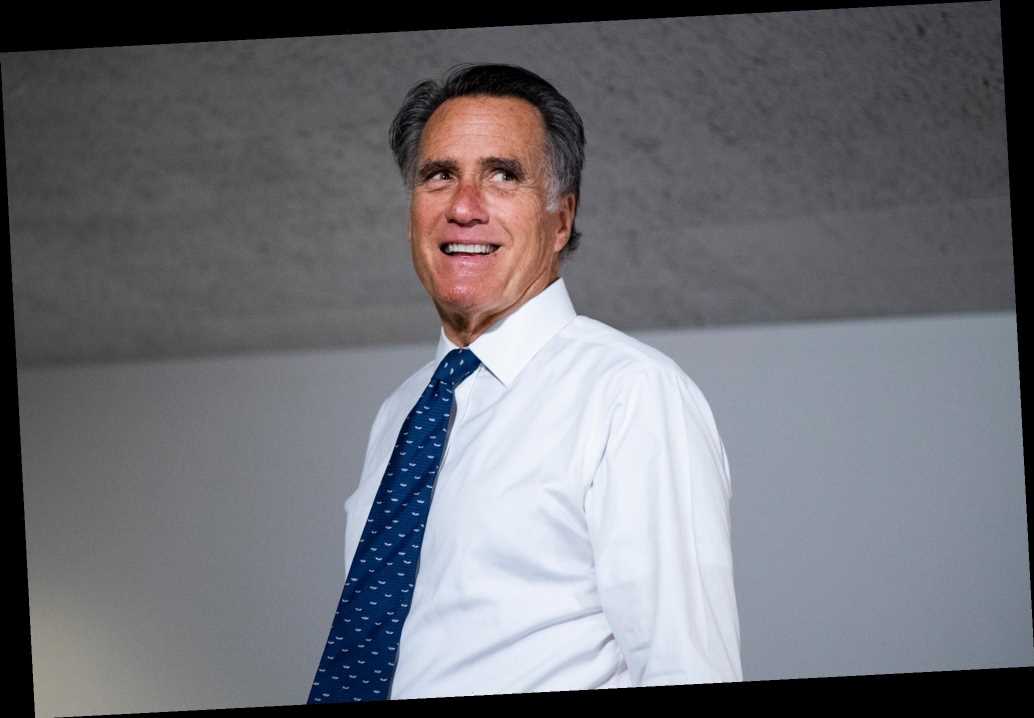Sen. Mitt Romney is leading a bipartisan group of senators in an effort to curb President Trump’s ability to remove troops from Germany after the commander-in-chief opted to withdraw tens of thousands of US soldiers from the region.
Romney (R-Utah) introduced a measure Monday alongside Sens. Lindsey Graham (R-SC), Marco Rubio (R-Fla.), Chris Coons (D-Del.), Tim Kaine (D-Va.) and Jeanne Shaheen (D-NH) prohibiting the White House from reducing the number of active-duty troops in the country below 34,500 without Congress confirming that such a move would not negatively impact European alliances or NATO.
On Wednesday, President Trump announced that he planned to withdraw tens of thousands of US troops from Germany — accusing the European nation of taking advantage of his administration by not paying their fair share to NATO.
“We’re going to be reducing Germany very substantially down to about 25,000 troops. We actually had 52,000 but we’ll be moving it down to about 25,000,” Trump told reporters at the time.
The US troops will be sent to Poland or will return to the US, he said.
Should the bipartisan measure become law, the Pentagon would be required to certify to Congress that a troop reduction would be in the national security interest of the United States.
Romney has a powerful group of Senators behind him on the bill thus far, and could find congressional GOP support for his measure.
Back in May, GOP members of the House Armed Services Committee put up a united front in an effort to convince the president to not go through with any troop withdrawals in Germany.
22 Republicans led by Rep. Mac Thornberry (R-Texas) urged Trump to reconsider the move in a letter.
“We are very concerned about reports that the Administration is considering a significant reduction of U.S. troops currently based in Europe as well as a cap on the total number of U.S. troops which can be present there at any one time,” the letter read.
Kaine, now a cosponsor, also led the effort to pass the war powers resolution in the Senate back in January.
That bill — had President Trump not vetoed it — would have curbed the White House’s ability to declare war with Iran without congressional approval.
Trump defended vetoing the measure at the time, calling the resolution “very insulting.”
“We live in a hostile world of evolving threats and the Constitution recognizes that the president must be able to anticipate our adversaries’ next moves and take swift and decisive action in response,” he said.
In a statement on the measure, Romney called the withdrawal of US troops from Germany, “a gift to Russia,” and “the last thing we should be doing.”
“In addition to undermining our NATO alliance, a withdrawal would present serious logistical challenges and prevent our military from performing routine military readiness exercises. I urge my colleagues to take up our measure to prevent such a reduction in troops deployed to Germany.
“We cannot abandon our commitment to our allies, and instead must strengthen our alliances in order to reign in the world’s bad actors and promote the values of freedom and democracy around the world,” Romney said.
During a July 2018 NATO meeting with Secretary-General Jens Stoltenberg, Trump questioned why the US protects Germany, ostensibly from Russia, while the country is involved in an energy deal with Russia.
“I think it’s very sad when Germany makes a massive oil and gas deal with Russia, where you’re supposed to be guarding against Russia, and Germany goes out and pays billions and billions of dollars a year to Russia,” Trump told Stoltenberg at the time.
“So we’re protecting Germany, we’re protecting France, we’re protecting all of these countries. And then numerous of the countries go out and make a pipeline deal with Russia where they’re paying billions of dollars into the coffers of Russia. And I think that’s very inappropriate.”
”But Germany is totally controlled by Russia, because they will be getting from 60 to 70 percent of their energy from Russia and a new pipeline,” he continued.
In their letter to the president, House Republicans conceded that Germany was deserving of some scrutiny.
“We strongly believe that NATO allies, such as Germany, should do more to contribute to our joint defense efforts. At the same time, we also know that the forward stationing of American troops since the end of World War II has helped to prevent another world war and, most importantly, has helped make America safer,” they wrote.
Share this article:
Source: Read Full Article
